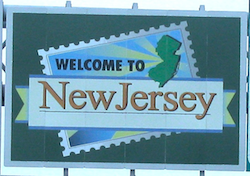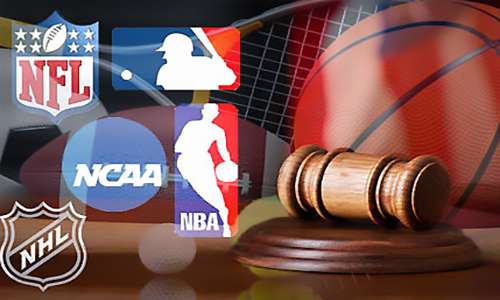New Jersey Legislature Passes Sports Betting Bill, Awaiting Governor’s Signature
Delaware’s reign as the only state aside from Nevada to offer traditional, single-game sports betting is going to be extremely short as the New Jersey legislature passed A4111 (S2602 is the identical bill in the state Senate), a bill which would legalize, regulate, and tax sports wagering in the state, quite easily. And when I say quite easily, I really mean with zero resistance, as the Assembly voted for it 73-0 and the Senate passed it 37-0. If only we could all agree like this on everything!
 That New Jersey did this comes as no surprise. The state has been fighting to start a sports betting industry for years, but every time it passed laws to do so, the professional sports leagues in the U.S. plus the NCAA sued to stop it. The U.S. Supreme Court took up New Jersey’s legal case last year and in mid-May came down with the expected ruling and overturned the Professional and Amateur Sports Protection Act of 1992 (PASPA).
That New Jersey did this comes as no surprise. The state has been fighting to start a sports betting industry for years, but every time it passed laws to do so, the professional sports leagues in the U.S. plus the NCAA sued to stop it. The U.S. Supreme Court took up New Jersey’s legal case last year and in mid-May came down with the expected ruling and overturned the Professional and Amateur Sports Protection Act of 1992 (PASPA).
PASPA made sports betting illegal in the U.S., though states that had legal gambling for the ten years were allowed to be grandfathered in. Nevada, Montana, Oregon, and Delaware chose to opt-in, though Nevada was the only one that has offered single-game betting until this week. With PASPA gone, states can now decide to legalize sports betting if they wish.
Delaware beat New Jersey to the punch, legalizing sports betting on Tuesday and taking its first bets at 1:30pm the same day. More states are expected to do so next year and according to The Press of Atlantic City, Eilers & Krejcik Gaming believes that 44 of the 50 states will have sports betting by 2023. Two of the states that won’t are probably Hawaii and Utah, as they have no legal gambling, even lottery. I would read the report to get the other four, but it costs $1,000 and I don’t think I could fudge my expense report effectively enough to pay for that.
“This is a great day for New Jersey but an even greater day for Atlantic City,” said Assemblyman Vince Mazzeo in a statement. “The economic opportunities that sports betting will bring (will) create development, jobs and drive more people to Atlantic City to enjoy our great amenities.”
New Jersey casinos and racetracks will be permitted to offer sports betting. Sportsbooks will be subject to an 8.5 percent tax on their net sports betting revenue (wagers taken minus winnings paid out) plus another 1.25 percent which will go to the municipality where the sportsbook is located (0.75 percent) and the county (0.5 percent).
Internet sports betting will happen, but not until 30 days after the law takes effect. Internet will be taxed a bit higher: 13 percent.
Though gambling venues – particularly the Monmouth Park racetrack – want to get everything started Friday, that may not happen as New Jersey Governor Phil Murphy still needs to sign the bill into law. Everyone knows he will, but he does have 45 days to do so. Now, he will not take that long, as he and everyone else in Trenton wants sports betting, but Friday might not be the day.
Dan Bryan, a spokesman for the Governor’s Office, told The Press, “”He said he wants to act quickly, but the legislation will be subject to the same thorough review that all legislation sent to him for signature is subject to.”
One thing that is not included in the bill is the “integrity” fee that some sports leagues wanted. Originally 1 percent on all wagers and then cut to 0.25 percent, the fee would – if the NBA, MLB, and PGA got their way – go to the leagues to supposedly help protect the integrity of the games.
New Jersey lawmakers saw through the bullshit, though, and refused to play ball on that. At a recent hearing, representatives from the leagues said they needed the money to fund “tools” to combat sports betting corruption.
“The tool you’re looking for is money. That’s not going to happen,” said New Jersey Assemblyman Ralph Caputo.
“You guys are in it to make money. This is hypocrisy to the fullest extent,” he added.
New Jersey State Senate Pres. Stephen Sweeney addressed the integrity fee in a letter to lawmakers and governors of all 50 states, writing, ““Essentially, the Leagues are asking to be paid to allow games to be played fairly. And their demand begs the question of what they would now start doing to preserve the integrity of their games that they have not been doing for years.”



















COMMENTS